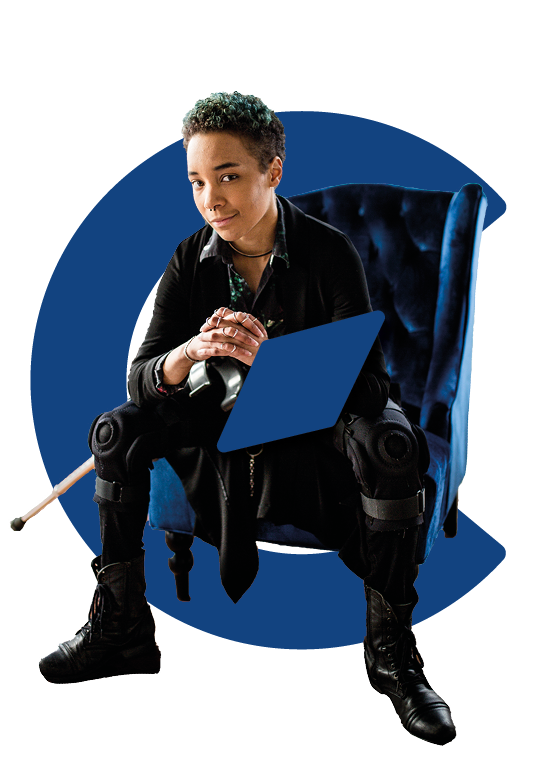When should I set-up a Personal Injury Trust?
A person has 52 weeks to set-up a Personal Injury Trust from the date of receipt of the first payment they receive in respect of a personal injury. During this time, the money is disregarded. If, after 52 weeks however, their savings remain above the capital limits for means-testing and local authority funding, their entitlement will be affected and possibly stop altogether.
If a person deliberately disposes of money in order to maintain their entitlement to means-tested benefits or local authority funding, they may be in breach of the rules relating to deliberate deprivation of capital.
Contact us for advice: 0800 612 8196 advice@cfglaw.co.uk
Who can be a Trustee?
The Trustees will often be close family members and/or friends. They can also be professionals such as solicitors or accountants, but they will normally charge for their services. Trustees have a duty to act in the best interests of the Beneficiary and ensure that the Trust Fund is used for their benefit.
The Trustees will need to open a separate bank account to administer the Trust Fund. They will be signatories to this account and it is recommended they maintain a record of all transactions.
Contact us for advice: 0800 612 8196 advice@cfglaw.co.uk
Can I be a Trustee?
Yes, but there must always be a minimum of two Trustees or a Trust Corporation.
Contact us for advice: 0800 612 8196 advice@cfglaw.co.uk
How is a Personal Injury Trust taxed?
With a Bare Trust, income and capital gains are treated as the Beneficiary's for tax purposes. There is no requirement to separately register the Personal Injury Trust with HMRC. An annual tax return might need to be filed however, if the Beneficiary's usual personal allowances have been utilised.
There are no immediate or periodic tax charges, which apply to other types of Trust.
Contact us for advice: 0800 612 8196 advice@cfglaw.co.uk
What can go into a Personal Injury Trust?
Only money in respect of a personal injury can go into a Personal Injury Trust. However, the Trustees generally have wide powers of investment meaning they can purchase property and invest in any type of asset, anywhere in the world.
ISAs and certain National Savings & Investments products are prohibited because they cannot be held in the name of the Trustees.
Contact us for advice: 0800 612 8196 advice@cfglaw.co.uk
How can I set up a Personal Injury Trust?
Our specialist solicitors can help you and provide all the information you need about setting up a Personal Injury Trust. They can make all the necessary arrangements to set up the Trust for you, as well as acting as a professional Trustee if this is the best option for you and your family.
Contact the team today to discuss how we can help you and your family to achieve your best outcomes and lead fulfilled lives.
Contact us for advice: 0800 612 8196 advice@cfglaw.co.uk
Why do I need a Personal Injury Trust?
A Personal Injury Trust is a way for people who receive money in respect of a personal injury to preserve their entitlement to claim means-tested benefits and local authority funding both now and in the future. This is because the assets in the Trust (the Trust Fund) are exempt from the capital limits for means-tested benefits and local authority funding.
Contact us for advice: 0800 612 8196 advice@cfglaw.co.uk
Can I change my Trustee?
Yes. A Beneficiary usually has the right to remove or appoint new Trustees, as well as the power to bring the Personal Injury Trust to an end at any time.
Contact us for advice: 0800 612 8196 advice@cfglaw.co.uk
What is a Personal Injury Trust?
A Personal Injury Trust is a legal document (normally a 'Bare Trust'), which transfers control of the money in respect of a personal injury from the person receiving it ('the Settlor') to two or more people or a Trust Corporation ('the Trustees') with instructions that they hold the Trust Fund for the person's benefit (as 'Beneficiary').
Contact us for advice: 0800 612 8196 advice@cfglaw.co.uk
How much can I have from my Personal Injury Trust?
The law generally allows a person to have up to £6,000 in savings at any one time, before their means-tested benefits are affected. Therefore, if a person has £4,000 in savings, they can receive another £1,999 to ensure they remain below the limit. When the £6,000 is exhausted it can be replaced by another £6,000 and so on.
Different capital limits apply to Local Authority funding, but the principle remains the same.
Contact us for advice: 0800 612 8196 advice@cfglaw.co.uk
Is there a limit on how often I can receive money from my Personal Injury Trust?
No. There is no limit on the number of withdrawals that can be made, but you should avoid setting-up regular payments of the same amount. Anything in excess of the capital limits for means-tested benefits and local authority funding should be paid for directly from the Trust Fund.
Contact us for advice: 0800 612 8196 advice@cfglaw.co.uk
Can I spend money from my Personal Injury Trust on what I want?
Yes. There is no restriction on how the money is spent, providing it is for the benefit of the Beneficiary.
Benefits income ought to continue to be used to meet ordinary day to day expenditure such as shopping, utilities, etc.
Contact us for advice: 0800 612 8196 advice@cfglaw.co.uk
What happens when I die?
The Trust Fund forms part of a Beneficiary's estate for Inheritance Tax purposes.
Contact us for advice: 0800 612 8196 advice@cfglaw.co.uk








